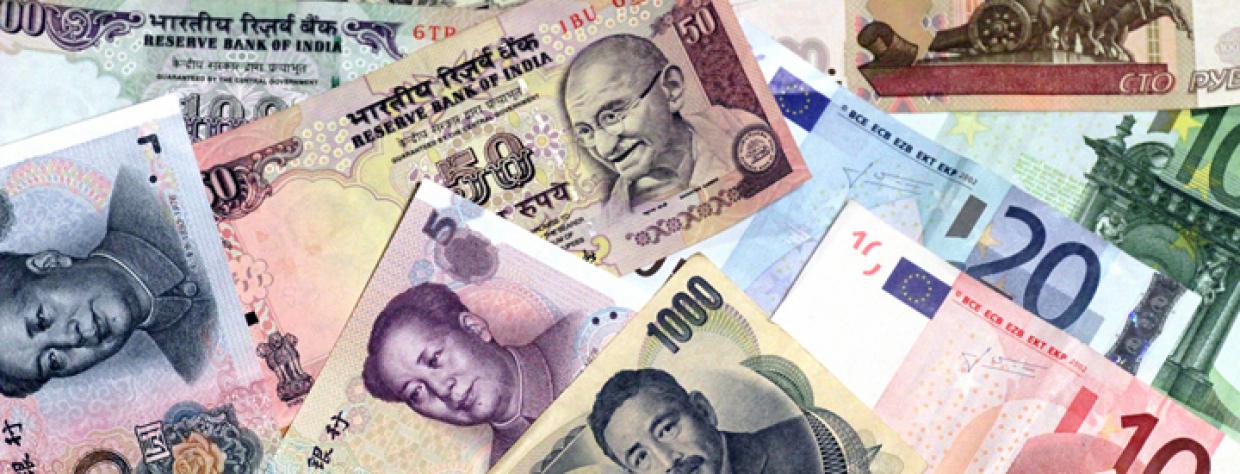On December 8 and 9, the EastWest Institute and the China Institute of International Studies (CIIS) convened their third annual Trialogue21 meeting of public and private sector leaders from China, Europe and the United States in Washington, DC. More than 40 representatives from government, business, academia, think tanks and civil society attended the meeting, which was followed by a special session co-sponsored by the World Bank on global efforts to strengthen and develop the world economy.
The meetings took place at a critical juncture for the international community and the Trialogue21 process. A new U.S. administration is a month away. The world is battling a financial crisis and reevaluating the global financial architecture. China-EU relations have soured in the wake of China’s cancellation of the EU-China financial summit. And China, in the 30th year of its economic liberalization process, is confronting fundamental development challenges while attempting to meet global expectations of its role as a rising power. As the world grapples with this period of change and uncertainty, it is essential that China, the EU, and the U.S. coordinate their responses to common threats and opportunities.
Key Issues Addressed:
- How can we best manage the China-Europe-U.S. trilateral relationship?
- What are the specific potential areas of strategic cooperation for the three powers in international peace, security, and financial stability?
- What opportunities and challenges does China face after 30 years of liberalization and reform?
- How can China, Europe, the U.S., and the rest of the international community work together to address global economic challenges?
Key Recommendations:
Trialogue21
Trialogue21 participants had varying views on China’s integration with the international economic community, its role as a global power, its relationship with Europe, and the new U.S. administration’s relations with China and Europe. But all agreed that that the China-Europe-U.S. trilateral relationship is mutually beneficial, politically necessary, and strategically significant. Participants laid out the following recommendations to more effectively manage the trilateral relationship:
- The EU and China must define a roadmap and take a series of reciprocal steps over a two-year period to manage their strategic relationship, especially in the wake of tensions over Tibet and China’s cancellation of the China-EU financial summit.
- All three powers must develop a framework for continued dialogue at all levels that is based on trust, confidence and an acceptance of cultural differences, not political ideology or Cold War thought.
- All sides have significant roles to play in areas of common concern, including weapons of mass destruction, counterterrorism, countering violent extremism, cyberterrorism, refugee movement, food security, and energy and environmental security. These concerns demand cooperation and a new, post-partisan thinking on all sides.
- Europe and the U.S. need to accurately evaluate China’s development challenges and understand China’s concerns about its territorial integrity and sovereignty.
- All three parties should engage the G-20 to redefine the global financial architecture.
- China must have a greater presence in the global media so that Chinese opinions and perceptions are better communicated.
Special Session: “Moving Forward with Global Efforts to Develop the World Economy”
The focus of this session was Chinese President Hu Jintao’s four-point proposal on sustainable global economic development that he presented to the Major Economies Meeting on Energy Security and Climate Change at the July 2008 G-8 summit in Japan. His proposal, which he echoed at the G-20 financial summit in November 2008, advocated a sustainable world economic system, an inclusive and orderly international financial system, a fair and equitable international trade regime, and a fair and effective global development system. Participants at the session were in general agreement with the proposal. An international panel of speakers from business, academia and think tanks made a number of specific recommendations in the four areas, including:
- Greater influence for developing countries in global economic affairs.
- A more comprehensive, balanced, incremental and result-oriented system for international financial reform.
- Greater attention to the allocation of food, energy, and other resources as tools to create a sustainable economy.
- Review of conventional thought on bilateral preferential trade agreements and whether they aid or hinder the multilateral free trade system.
- Encouragement of private philanthropy to complement official development assistance in order to meet the Millennium Development Goals despite the financial crisis.
EastWest Institute Next Steps:
In cooperation with CIIS, EWI will now:
- Publish the first tri-annual report for Trialogue21, which will review the key outcomes of the first three Trialogue21 meetings and set milestones for the future development of this dialogue initiative.
- Publish a conference report on the special session, “Moving Forward with Global Efforts to Develop the World Economy.”
- Issue joint publications and place op-ed articles by Chinese, European and American authors on critical issues requiring trilateral cooperation.
- Convey key discussion points and recommendations to policymakers in the China, Europe, and the U.S., including the new US administration.
